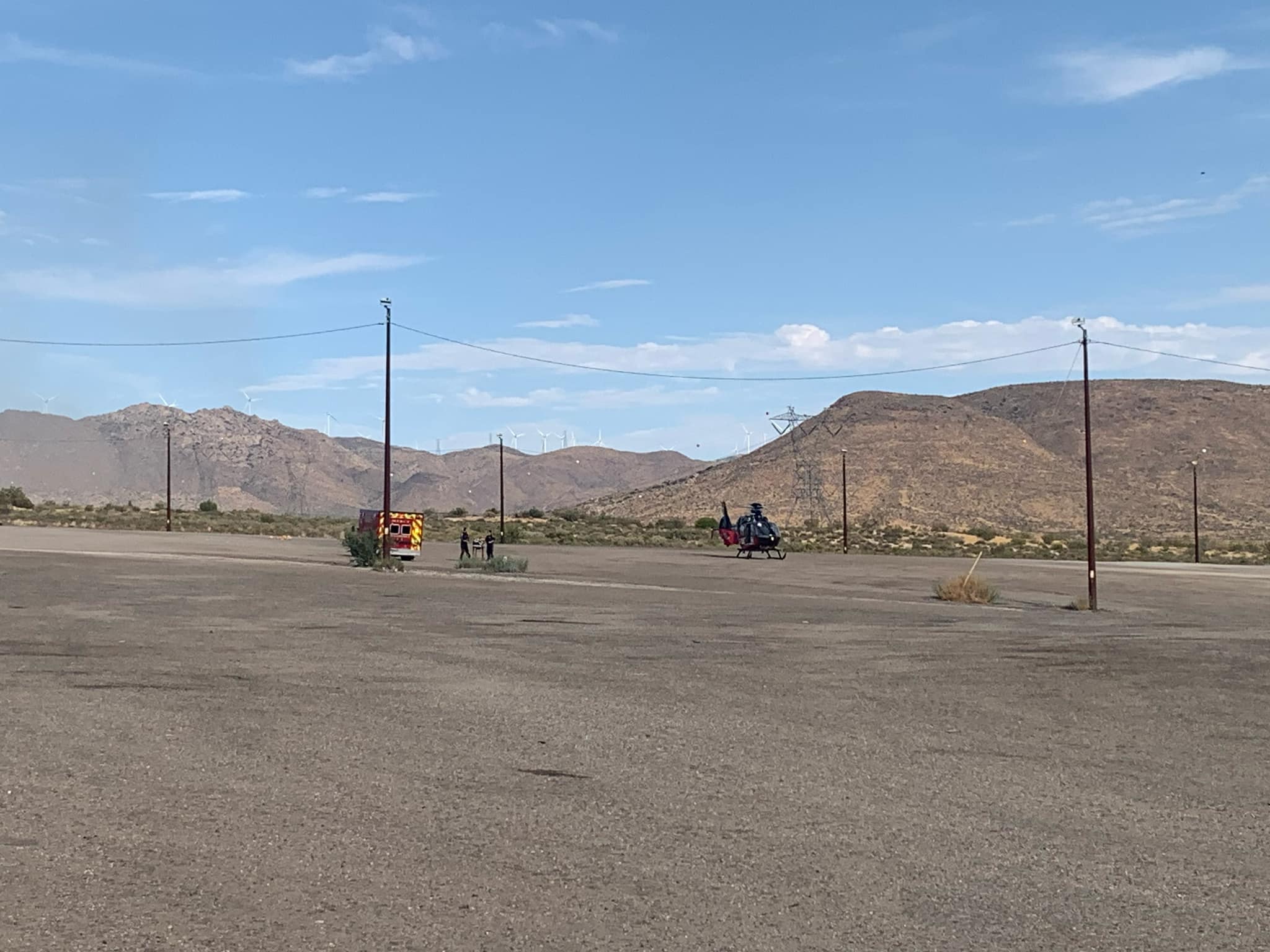Scorching temperatures through the mountains and deserts keep rescue crews busy in San Diego County.
After a biker in Carrizo Gorge helped hikers who had no food or water on Sunday, Cal Fire crews found him unresponsive about a quarter mile from the trailhead.
“This was a good Samaritan just trying to help out," said Brent Pascua, Fire Capt. with San Diego County Fire. “Unfortunately, bad things happen to people out there when it's this hot.”
The 24-year-old biker from Otay Mesa went to Jacumba Hot Springs with his friends for a mountain bike ride on Saturday, according to Chuck Westerheide, the County of San Diego's Public Safety Group Communications Officer.
Get San Diego local news, weather forecasts, sports and lifestyle stories to your inbox. Sign up for NBC San Diego newsletters.
He had rode from their meeting point close to Interstate Route 8 to Goat Canyon Trestle. On the return ride back from their meeting point, the biker complained of feeling tired and stayed behind while a friend got water for him.
Later, he and his friend were returning to the meeting point when he collapsed multiple times along the way, ultimately becoming unresponsive, Westerheide told NBC 7.
He was carried into an air-conditioned pickup truck, then transported from an ambulance to an air ambulance, where paramedics attempted lifesaving measures on him. He was eventually pronounced dead at 5:45 p.m., said Brent Pascua, Fire Capt. with San Diego County Cal Fire.
The cause of death and other information were not immediately available. He has yet to be identified, according to the County of San Diego.
How to avoid heat exhaustion
The San Diego Mountain Rescue Team suggests planning a trip well within your abilities, checking the weather forecast and bringing the essentials — including plenty of water. As a general guide, expect to drink one liter every two hours and bring extra just in case you're out longer than you plan to be. Hikers and bikers should pack some food with salts and electrolytes to replace what they lose through sweat as well.
Think about bringing even more supplies to share.
“We in the mountain bike community always like to check on somebody we come across, whether they're having a flat tire or mechanical or whether they might be in distress,” said Susie Murphy, San Diego Mountain Biking Association Executive Director. “I'm asking if they're okay, asking if they need water, do they need a snack, any of that stuff.”
She told NBC 7 one of the first rules of wilderness aid is to make sure you’re able to help someone else before you even try to step in.
“You want to make sure you're doing that within what you've been trained for or what you have experienced,” Murphy said. “So, it is important that you don't, for example, give away all your water if you're a certain distance into a trail and you both have to get back out.”
Current top stories on NBC 7 San Diego
She reminded everyone to stay on designated trails so that if something does go wrong — there’s a clear path for help to reach you.
Despite the generally good cell coverage in the City of San Diego, our mountains and deserts have many areas without cell reception. Rescue crews suggest carrying a satellite messaging device or even using the satellite messaging built into some cell phones. They said it can mean the difference between having the ability to call for help or not.
The San Diego Mountain Biking Association has a "Trail Preparedness" guide for even more resources and tips to keep in mind before you hit the trails.



